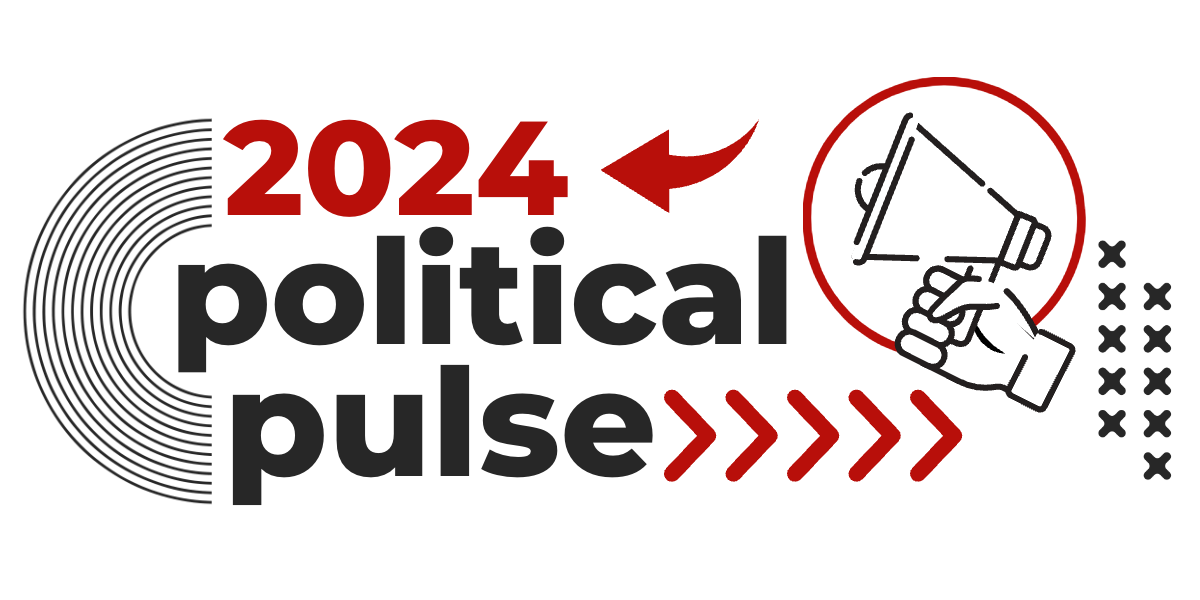 DATA POINTS
DATA POINTS
- 3: The number of deaths recorded from an infection with rare flesh-eating bacteria in Connecticut and New York
- 5: The number of GOP candidates fully qualified for the first Republican presidential debate later this month
- 39%: The percent the average 401K is up in the past decade
- 200: The number of vessels stuck on either side of the Panama Canal
- $235 Million: The amount the U.S. Air Force is investing in a start-up manufacturer to build a jet for the military
- $17.05 Trillion: The record high consumer debt recorded in the first quarter of 2023
 The Battle for the Alternative to the Alternative
The Battle for the Alternative to the Alternative
While Donald Trump’s stronghold on top of national and early state polls for the Republican presidential nomination has been remarkable, the movement in polls for alternatives is getting more interesting. Ron DeSantis has consistently been in the number two spot since announcing his candidacy in May, but has slid nearly 10 points since then. Contrary to conventional wisdom this spring, the race for second place (and the mantle of Chief Alternative to Trump) is wide open.
In Iowa – the home of the first contest for Republicans – Trump is running 11.3% behind his national Real Clear Politics (RCP) national average at 43.5%. DeSantis is in second at 16.8% (2 points ahead of his national RCP average. The big mover, however, is Tim Scott who has risen to third place at 10.5% (7.7% above his national RCP average). Vivek Ramaswamy is in fourth with 5.5%.
New Hampshire also has Trump on top, but the race to be the chief alternative to him looks different here than in socially conservative Iowa. While DeSantis is in second at 13.3%, former New Jersey Governor Chris Christie has jumped into third place with 8%. Tim Scott is close behind him at 7.5%.
Christie is down at 2.7% in Iowa, which means that among the jockeying for third place – or chief alternative to the alternative – Tim Scott seems to be getting his footing by claiming third in Iowa and fourth in New Hampshire.
A lot can (and will) happen in the 150 days between now and the first votes being cast in the Iowa Caucus. The next major event is the Republican debate taking place on FoxNews next Wednesday (Aug 23), which may or may not include Donald Trump. Regardless, it will have a high viewership and may present opportunities for candidates to move up in the RCP. Poor performances (and not making the debate stage at all) will also put pressure on candidates to hang it up. You can count on The Weekender to bring you the latest.
Read More at Real Clear Politics
Wildfires are Destructive in Canada, Deadly in Hawaii
Devastating wildfires are making headlines. The Canadian wildfires that left New York City in an orange glow for days already doubled the country’s fire emissions from last year. In Hawaii, the Lahaina fire coursed itself across Maui last week, leaving a death toll of 110 in its wake, becoming the deadliest U.S. fire in more than 100 years. This death total will likely rise as teams have only gone through roughly a third of the search area. The horrific news of increasing wildfire destruction, intensity, and frequency, sits aside this year’s July ranking as the hottest July record on Earth by a long shot.
The modern economy establishes a quality of life unimaginable to humankind hundreds of years ago. The downside is the seemingly incorrigible amount of greenhouse gas emissions required to facilitate our newfound way of life. Atmospheric CO2 concentrations were higher in 2019 than at any point in the past 2 million years. While climate change is the main cause of wildfire weather’s increased erratic behavior, the razing flames are not the only catastrophic outcome of higher emissions. The United Nations says humanity only has until 2040 to reduce emissions to prevent the worst effects of climate change. While we are far past avoiding many of the effects of climate change, a global race to net zero is paramount to preventing the worst cases scenarios.
Public Opinion Polls Joins U.S. Military Adversary List

Seeking a new approach to increase enrollment, the U.S. Army targets a new demographic: Call of Duty players. Gamespot reported the Army spent millions on Twitch advertisements (a popular video game streaming service) to reach the group of primarily youth gamers. The Army aims to meet those interested in war games during esports tournaments with an opportunity to join their force in real life.
Illinois Becomes Ninth State to Ban Assault Weapons

The law went into effect this past January and solidified Illinois’ position as the ninth state to prohibit assault weapons. Illinois joins Washington, California, New York, Massachusetts, Connecticut, New Jersey, Delaware, Maryland, and Washington, D.C. in banning the firearm class.
Is X Unfairly Crossing Out Competitors?

A source from Hacker News first encountered a load barrier against The New York Times on August 4, the same day Musk called the Times a “racial genocide apologist” and encouraged people to cancel their subscriptions. The Times was not alone, delays were found on links to Facebook, Instagram, and Threads (all three owned by Meta).
Musk has leveraged X’s technical capacities to complete personal vendettas before, including banning an account that tracked his private jets and banning journalists who reported on it. While the 5-second delay may not seem significant, it’s a big deal for online companies. A Google study of mobile users found 53% of website visits are outright abandoned if the mobile site takes longer than 3 seconds to load.
Women are Ruling the Entertainment World

This is great news for women in the entertainment industry and brings palpable benefits to the local economies where Taylor and Beyonce perform. The Eras Tour may potentially generate an overwhelming $4.6 billion in consumer spending in the cities and towns where Taylor holds a microphone. Dedicated Swifties buy far more than tickets – they go all out for the performance. Sales of clothing, hotels, travel, meals, drinks, and much more bring immense financial bumps to local economies. A report from QuestionPro demonstrates that the Eras Tour has an economic impact greater than 50 countries, with fans spending around $1,300 on tickets, outfits, meals and more. Beyonce’s fans will spend roughly $1,800 on tickets and local goods.
Barbie is joining the economic support wagon as well. AMC had the best week in its 103-year history during the Barbenheimer release weekend as Google searches for “Birkenstock sandals for women” jumped 346% because of the premier. Bloomberg reports that the bump in sales is just what Birkenstock needed to go public and the brand is expected to launch an initial public offering as soon as September. These women are creating far more than entertainment – they are generating economic development as every local community they visit turns to gold.
INTERNATIONAL SPOTLIGHT
Ecuador Becoming Wilder than their Galápagos Islands
Ecuador is facing political turmoil as unprecedented violence has claimed the life of its third political leader in four weeks. The most recent assassination was the shooting of Pedro Briones, a local leader of former President Rafael Correa’s Revolución Ciudadana. His murder comes less than a week after the broad daylight assassination of presidential candidate Fernando Villavicencio who took a hardline stance against organized crime and corruption. The first politician to be killed was Agustín Intriago, mayor of Manta, Ecuador’s third largest city, who had been recently re-elected to another term. Luisa González, presidential frontrunner and member of the Revolución Ciudadana party, maintains her stance against crime syndicates ahead of Sunday’s special election.
The killings are not limited to elected officials; thousands have been murdered across the country over the past three years as cartel-aided local groups have transformed Ecuador into a major drug trafficking hub. Security and state forces have struggled to keep violence at bay in the port-heavy country as current President Guillermo Lasso has largely failed to reign in corruption and crime turf wars. Corruption became so rampant that the United States withdrew visas from high-ranking officers within Ecuadorian state security forces allegedly linked to drug trafficking, including judges and lawyers.
Whoever wins Ecuador’s presidency will be tasked with fighting off militias, cartel groups, and gangs amid a constituency with record high levels of apathy, mistrust and dissatisfaction.
Read More at The Associated Press
FEATURED TWEET



 DATA POINTS
DATA POINTS The Battle for the Alternative to the Alternative
The Battle for the Alternative to the Alternative


